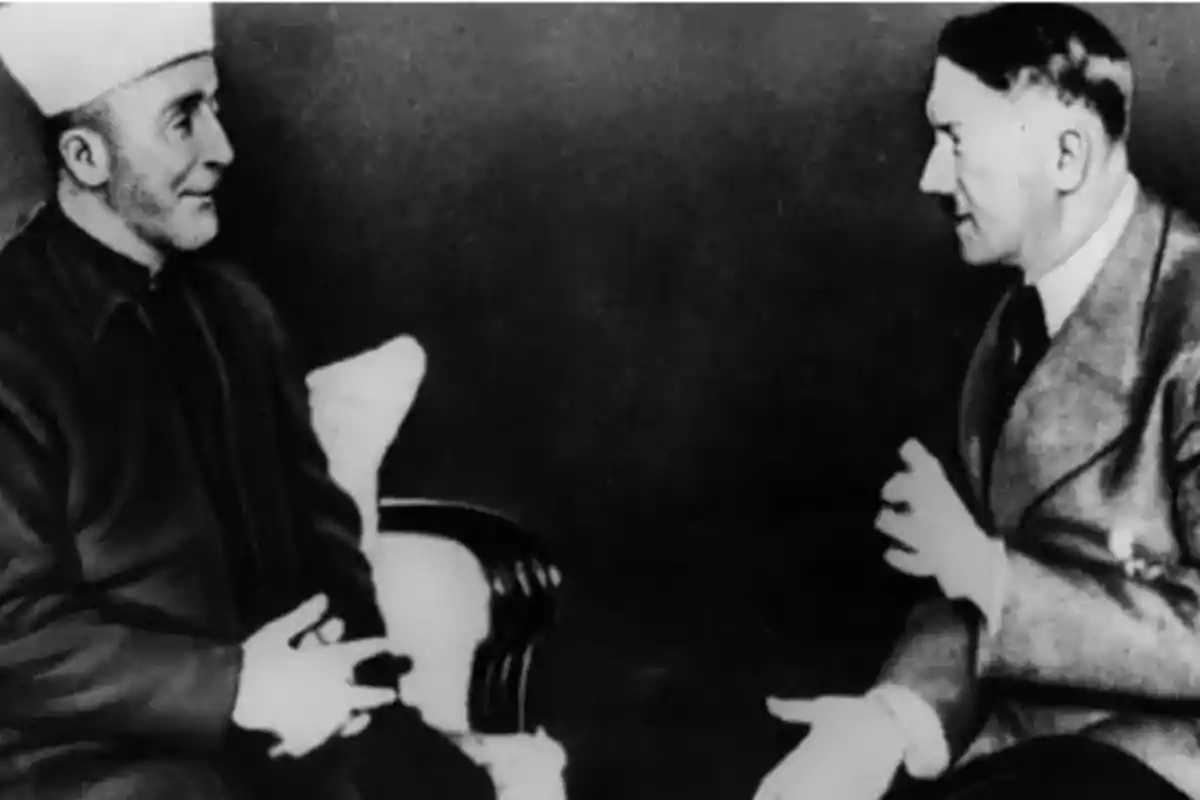
The leader who founded the Palestinian cause was a personal ally of Hitler.
Amin al-Husayni, a central figure in the Palestinian cause, was one of the ideological drivers of radical Islamism
During the first half of the 20th century, amid the disintegration of the Ottoman Empire and the rise of nationalist movements, a figure emerged in Palestine who would deeply shape the course of the Arab-Israeli conflict: Amin al-Husayni, the Grand Mufti of Jerusalem.
Beyond his role as a religious leader, al-Husayni was a decisive political actor, not only in shaping modern Palestinian identity, but also as a precursor of radical Islamism that incorporated violent,antisemitic, and antidemocratic components.
Al-Husayni was one of the main opponents of the establishment of a Jewish national home in Palestine. Beginning in the 1920s and 1930s, he led riots and violent uprisings that resulted in the deaths of hundreds of Jews in the British Mandate of Palestine.
His rejection of the Zionist project was not limited to the political or territorial sphere: it was deeply rooted in a theological and racial vision of the conflict, which was expressed in concrete actions and openly anti-Jewish speeches. In fact, al-Husayni is considered one of the founding voices of modern radical Islamism, an ideological current that blends Arab nationalism, religious essentialism, and systematic hatred toward Jews.
His alliance with the Nazi regime during World War II is one of the most revealing—and least publicized—aspects of his trajectory. In 1941, al-Husayni met with Adolf Hitler in Berlin. From that point on, he began a close collaboration with the Third Reich, not only in symbolic terms, but also in propaganda and strategic terms. He was used as a spokesperson for Nazism to the Muslim world, participating in radio broadcasts and drafting statements that incited violence against Jews.
In March 1944, al-Husayni clearly expressed his intentions in a speech broadcast from Berlin: "Rise as one and fight for your sacred rights. Kill the Jews wherever you find them. This pleases God, history, and religion." These words were not an exception, but part of a systematic discourse that encouraged the extermination of the Jewish people. His commitment to the Nazi cause included the recruitment of Muslims for the Waffen-SS in the Balkans, promoting jihad as a common form of struggle between Islam and Nazism against their shared enemies: Judaism and liberal democracy.
The collaboration between Nazism and leaders of the Muslim world was also promoted from Berlin. Paul Schmitz, National Socialist propagandist, wrote in 1938: "We know the importance of the Islamic world in the fight against the Comintern. Hence the bonds of friendship that unite us with Islamic peoples."
Heinrich Himmler,chief ofthe SS, stated in 1942: "Unfortunately, Germans played an important role in the defeat of these two invasions (Arab and Ottoman) and deprived Europe of the flourishing spiritual light of Islamic civilization."Hitler himself declared: "The Mohammedan religion would have been much more compatible with us than the Christian one, meek and weak."
These ties were extensively documentedby historian David Motadel, author of the book Muslims and the War of Nazi Germany. There he details how between 1941 and 1942, Berlin intensified its strategy of presenting Nazism as an ally of Islam, recruiting tens of thousands of Muslims for Axis troops and encouraging Islamic uprisings in Allied colonies.
After the defeat of Nazism, al-Husayni was captured in France, although he was never tried for crimes against humanity. He later returned to the Middle East, from where he continued inciting the destruction of the State of Israel until his death in 1974. His ideological legacy remains alive in certain sectors of contemporary radical Islamism, which consider him a martyr of the Palestinian cause.
More posts: